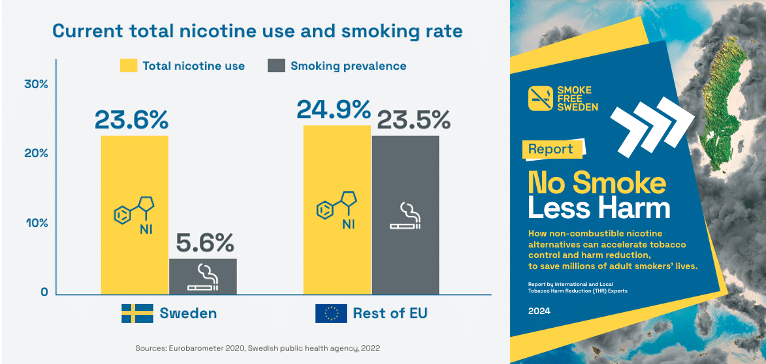
‘No connection’ between how much one snuses and increased mortality
A new study from Umeå University and the Karolinska Institutet has identified an increased risk of mortality among users of Swedish snus compared to non-tobacco users, but the supposed link may instead be related to correlated lifestyle factors.
“The findings do not show a connection between how much one snuses and increased risk,” says Tryggve Ljung, Vice President of Scientific Affairs at Swedish Match.
The study, published in December in the International Journal of Epidemiology, confirms a mortality link found in previous studies.
Snus users are not at higher risk of developing cancer or contracting cardiovascular disease.
However, if they do contract cardiovascular disease, their prognosis is slightly worse than for non-snus users.
Ljung notes that previous studies showed that those who stopped using snus after suffering a heart attack had better long-term outcomes than those who did not.
While snus does not lead to cardiovascular disease, if a snus user is unlucky enough to develop the disease, it is likely advisable to stop using snus.
Snus can save smokers’ lives
According to the authors, the purpose of the study was to investigate in detail whether there was a risk of excess mortality among snus users, without seeking to explain the cause.
“It has not been determined what causes the increased risk of mortality — whether it is because of the snus itself or something completely different,” Ljung says.
“This is clearly illustrated by the fact that the more you use snus, the lower the risk of dying from cardiovascular disease.”
The study also did not compare the dangers of smoking compared to snus.
“There are other articles that have estimated the difference in risk and come to the conclusion that snus is at least 95 percent less dangerous than smoking, and that is why snus has saved so many former smokers’ lives,” he says.
“Few things are completely harmless, and it’s quite clear that snus and nicotine products should not be used by pregnant or breastfeeding women, minors, or people with cardiovascular disease.”
Snus harm reduction argument still valid
Ljung says that the study should not cause snus users to worry that their snus use might increase their risk of dying earlier.
“The study does not show that. What it shows is that those who use snus may have a slightly higher mortality, but it does not say that that is because of snus, which is something the authors are also careful to point out.”
In other words, the study does not contradict the harm reduction argument for snus, which is why Ljung still believes politicians should distinguish between snus and cigarettes.
“From a public health perspective, regulating snus in the same way as cigarettes is like regulating low alcohol beer based on the harmful effects of Russian vodka,” he says.
“If lawmakers are serious about wanting to promote public health, a pack of cigarettes should cost at least SEK 1,000, and it would still be impossible to defend as a public health policy.”




